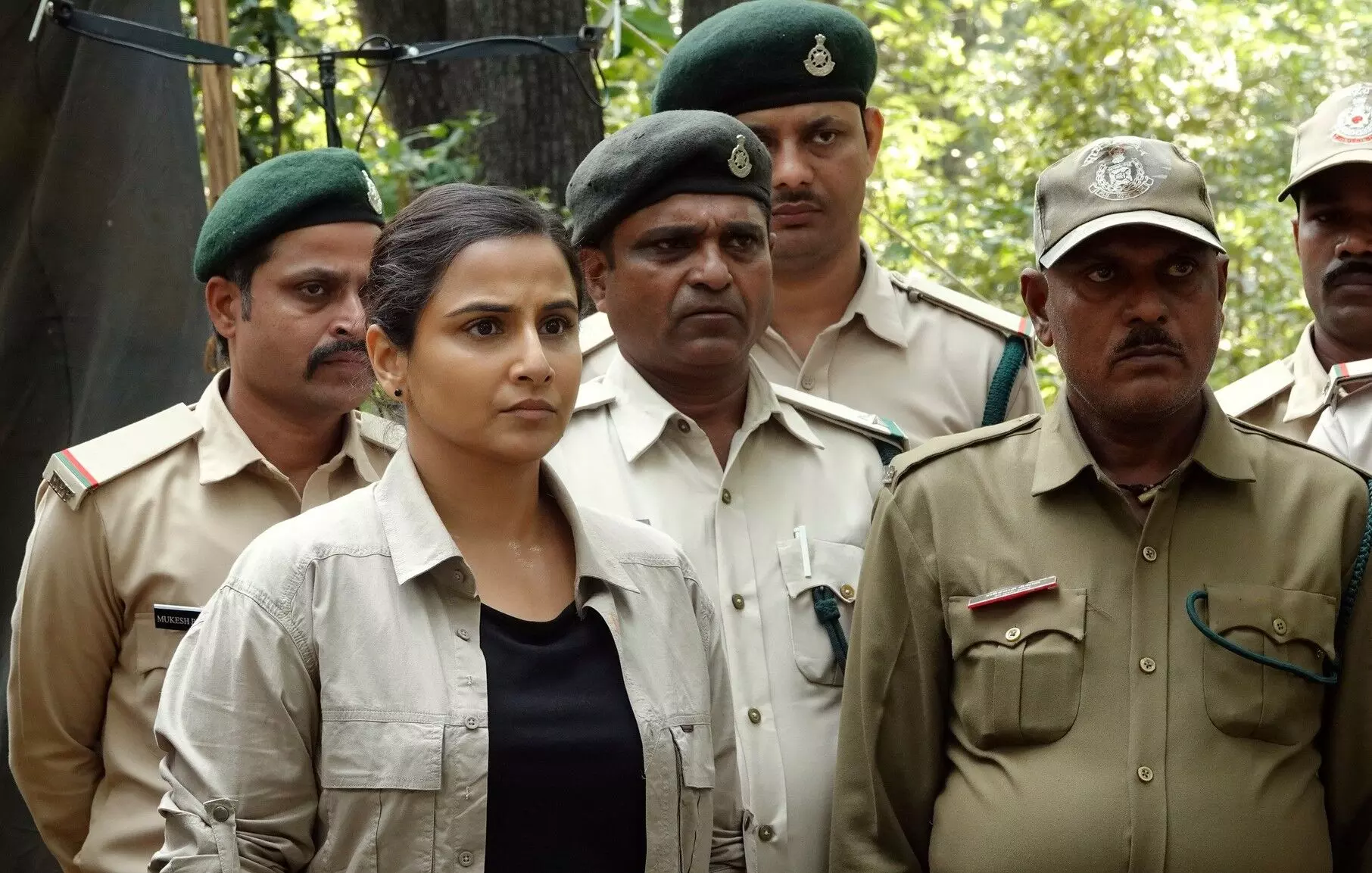

Trapped in gender fragility, 'Sherni' fights back
text_fieldsRemember Avni, the T1 tigress in the Pandharkawada-Ralegaon forests of Maharashtra? The 'man-eating' tigress made it to the news for killing about 13 to 14 people between 2016 and 2018 until she was finally shot dead in November 2018 by a sharpshooter hired by the forest department. At the time of her death, Avni was around 6 years old and had 2 cubs. The story of the T12 Tigress in 'Sherni' has so many similarities with Avni. However, the film's opening credits claim Sherni as a work of fiction and rightly so, since there is a checklist of topics that Sherni wishes to address beyond the man vs wild conflict drama.
Director Amit Masurkar, who is best known for Newton (2017), once again proves that he's quite good at tackling the kafkaesque situations in Indian bureaucracy. While Newton explores the democratic elections in the Maoist-jungles of Chhattisgarh, Sherni follows an even complex narrative with multiple subplots that explores the intricacies of forest life and environmental conservation.
Vidya Balan as Vidya Vincent portrays the role of a Divisional forest officer (DFO), who finds herself trapped in a new field posting in Bijashpur (MP) after 6 years of a desk job with the forest department. Within one and a half months, Vidya gets into a muddle over the 'man-eating' tigress named T12 that is causing worry among the villagers. The efficient and competent forest officer in her wants to address the problem, but things are not so easy as they seem to be. With the involvement of different stakeholders, the conflict gets even more convoluted as everyone is eager to milk the situation, making the most out of villagers fears.
However, Vidya decides to choose her battle wisely. Even after gathering foolproof evidence against Pintu Bhaiyya (Sharat Saxena), a wealthy trophy hunter who claims to be a 'conservationist by birth', Vidya refuses to lodge any complaint against him. "There is no time, either we fight or save the tigress," she tells Hassan Noorani (Vijay Raaz), the zoologist who accompanies Vidya in her efforts to save T12 and her cubs.
In another scene, Vidya tells her team, "Our job is to find a solution..not create more problems".Vidya also shows impeccable maturity in handling her corrupt boss Bansal, played by Brijendra Kala, whose only interest is to spend time fooling around and pleasing the local MLA.
An extension of this wisdom is seen in how Vidya deals with her mother-in-law who comes to see her. After the initial reluctance, she soon agrees to 'dress up' for her, probably because she has learned to "pick her battles", as suggested by her mentor Nangia ( Neeraj Kabi), though in bad taste.
Writer Aastha Tiku is trying to tell a complex tale of clashing interests – wherein the forest officials need to catch the tigress, villagers want to feed their cattle, tigers wishes to get back to their habitat, politicians like GK and PK desires to win the elections by polarizing the voters. On top of that, people like Pintu Bhaiyya and Bansal have their own personal interests at play.
Amidst these crooked politicians, trophy hunters, land grabbers, illegal miners, and corrupt bureaucrats lie the pressing issues of ecological conservation and habitat management, which no one pays heed to.
"Agar Tiger hai to jungle hai, jungle hai tabhi to Barish hai, agar barish hai to pani hai, aur pani hai tabhi to insan hai" (If the tiger exists, so does the jungle. If the jungle exists, so does the rain. If it rains, there's water. If there's water, there's human's life) is the simple funda that the film is trying to put across, at the least. Hence, if not anything else, this film needs to be watched to get your environmental concepts right.
The cinematographer Rakesh Haridas has also done a pretty good job in capturing the emotional side of the jungle and farmlands. The film follows a documentary style and is shot realistically. Some well thought out frames and good pauses have also elevated the film. For instance, in a scene where the principal tells Hassan Noorani that his name is not even mentioned in the newspaper reports, watching him reply 'what's in a name, the pleasure is in the work" standing right in front of the portraits of Gandhiji and APJ Abdul kalam gives goosebumps.
Nevertheless, the story tends to get slow-paced and repetitive in some places. A little more tight storytelling would have worked better, especially in the second half of the movie.
The film also needs applause for its casting, for every actor/actress has pulled off an equally good performance in the film irrespective of the length of their roles. Even the villagers and kids in the film played their characters well and looked believable on-screen.
Sherni is not a typical ecological conservation film. However, its potential lay in its ability to remind the audience of what we are doing to nature in the name of development and help sensitize the public on conservation subject. Having said that, the film also takes a blatant dig at the corrupt politicians and officials who take postings and transfers as the means to control the 'upright officers' so that they can retain their chamchas in the positions of power.
The movie is currently streaming on Amazon Prime Video.





















